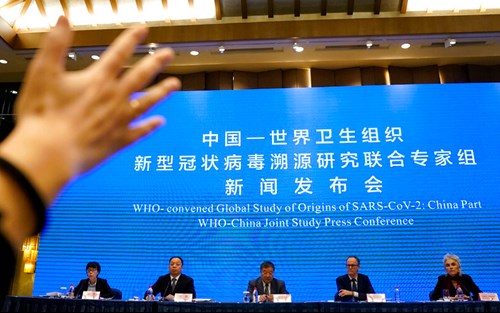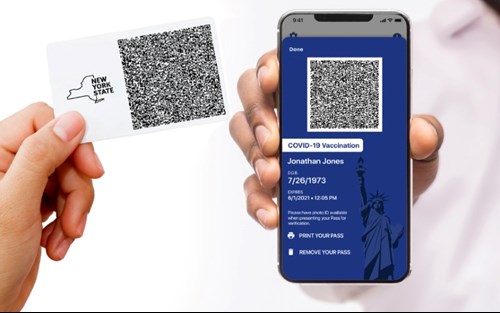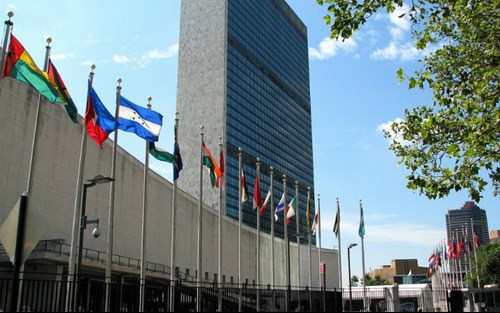WHO, the China-aligned medical and health arm of the United Nations, was roundly criticized for its COVID-19 response in a 2021 report by an independent panel which the WHO itself authorized. The panel concluded the WHO should have declared a global response earlier than it did and cited a “myriad of failures, gaps and delays in preparedness and response.”
Now the WHO says it’s trying to improve world-wide preparedness for future pandemics, which could give it immeasurable authority across the globe, and critics say its methods have the look of a massive Big Brother-like invasion of privacy.
The real trickery involved by the compliant Biden administration is to avoid the word "treaty," which would require action by the U.S. Senate
 This effort by the WHO has been 1-1/2 years in the making, back when a World Health Assembly first met in Geneva, Switzerland, but only now are U.S. House and Senate members realizing the threat, according to Michelle Bachmann, the former congresswoman. She set up the Nov. 8 briefing that included medical personnel, researchers, and Wall Street professionals.
This effort by the WHO has been 1-1/2 years in the making, back when a World Health Assembly first met in Geneva, Switzerland, but only now are U.S. House and Senate members realizing the threat, according to Michelle Bachmann, the former congresswoman. She set up the Nov. 8 briefing that included medical personnel, researchers, and Wall Street professionals.
“It was so much more successful than I thought it would be,” Bachmann said on Washington Watch Wednesday. “We had a number of legislative directors, chief of staff of members of Congress, House members, and also U.S. Sen. Ron Johnson from Wisconsin."
Sen. Johnson (pictured at right) has emerged as possibly the loudest voice on Capitol Hill, in fact, which means he is able to get an audience with fellow lawmakers who are clueless about the threat to U.S. sovereignty.
 "His frustration level is that there aren't more members who even know anything about this," Bachmann relayed. "Hardly anyone on Capitol Hill had even heard of this issue before, but it's beginning to resonate and I’m so grateful.”
"His frustration level is that there aren't more members who even know anything about this," Bachmann relayed. "Hardly anyone on Capitol Hill had even heard of this issue before, but it's beginning to resonate and I’m so grateful.”
The WHO in September made a statement of unity among its members – most of its members – as it pushes a pandemic agreement.
While last week’s declaration has no legal authority, the globalist World Health Organization is attempting to add amendments to the International Health Regulations, or IHR, which are legally binding for 196 nations, including the United States.
WHO would control your 'vaccine passport'
If the regulations are amended, the WHO would be empowered to declare a global health emergency. Under such a declaration, the WHO would have the authority to issue vaccine and mask mandates, and to call for lockdowns, restrictions on travel, and so many of the things that just played out in the COVID-19 pandemic.
The American public witnessed those restrictions during the pandemic, and many voiced their anger at elected politicians and vowed to never comply again. In a future pandemic, however, those politicians can shrug off any criticism since the UN and the WHO would be deciding and enforcing when and where you travel, go to work, and attend church.
 Perhaps the most important goal for the WHO is what most call a “vaccine passport,” which is called a “global digital health certification network" by the WHO.
Perhaps the most important goal for the WHO is what most call a “vaccine passport,” which is called a “global digital health certification network" by the WHO.
If the WHO is successful at amending the regulations, lacking a passport could limit access to travel and all kinds of public spaces.
Not only would the WHO would be able to decide what constitutes a health emergency, it would be able to define health care and the necessary response, leaving open the door for WHO to pursue its social agenda, Bachmann said.
“They have redefined health care to include climate change, racism, abortion, income inequality, LGBTQ issues, everything," Bachmann warned. "It sounds far out but that’s why we say we aren’t far out from creating a platform for global governance."
 The United States was not among 11 nations who voted against the declaration in September. The dissenters were Russia, Belarus, Bolivia, Cuba, North Korea, Eritrea, Iran, Nicaragua, Syria, Venezuela and Zimbabwe.
The United States was not among 11 nations who voted against the declaration in September. The dissenters were Russia, Belarus, Bolivia, Cuba, North Korea, Eritrea, Iran, Nicaragua, Syria, Venezuela and Zimbabwe.
“This isn't just America that's impacted. This is all 193 nations in the United Nations, virtually every person on Earth,” Bachmann said.
In light of that danger, Bachmann said the goal of the Capitol Hill briefing was to share the story of the last 1 1/2 years and motivate the listeners to take action quickly.
"We’ve only got a little over six months before this is expected to pass in Geneva, Switzerland at the next meeting of the World Health Assembly," she said. "We don't want that to happen, obviously, because once national sovereignty is ceded to the WHO, it's almost impossible to get back."
Like a Bond villain...but real
In September, WHO Director General Tedros Ghebreyesus presented the agreement as something official, calling it a “declaration" rather than a treaty.

“Last week was a historic week for health, with three high level meetings on health issues at the U.N. General Assembly in New York," the WHO director excitedly announced two months ago. "Member states approved strong political declarations on pandemic prevention, preparedness and response, (plus) universal health coverage and tuberculosis."
A Capitol Hill briefing is only a start. Bachmann says the WHO’s effort needs to become a priority for lawmakers and Americans in general.
“This sounds like a James Bond movie, that this could never happen, but I assure you it's in the documents," she warned. "And I went to Geneva, Switzerland for the last World Health Assembly. I listened to these people when they were talking to the committees that are being set up. I assure you this is planning to go forward."







